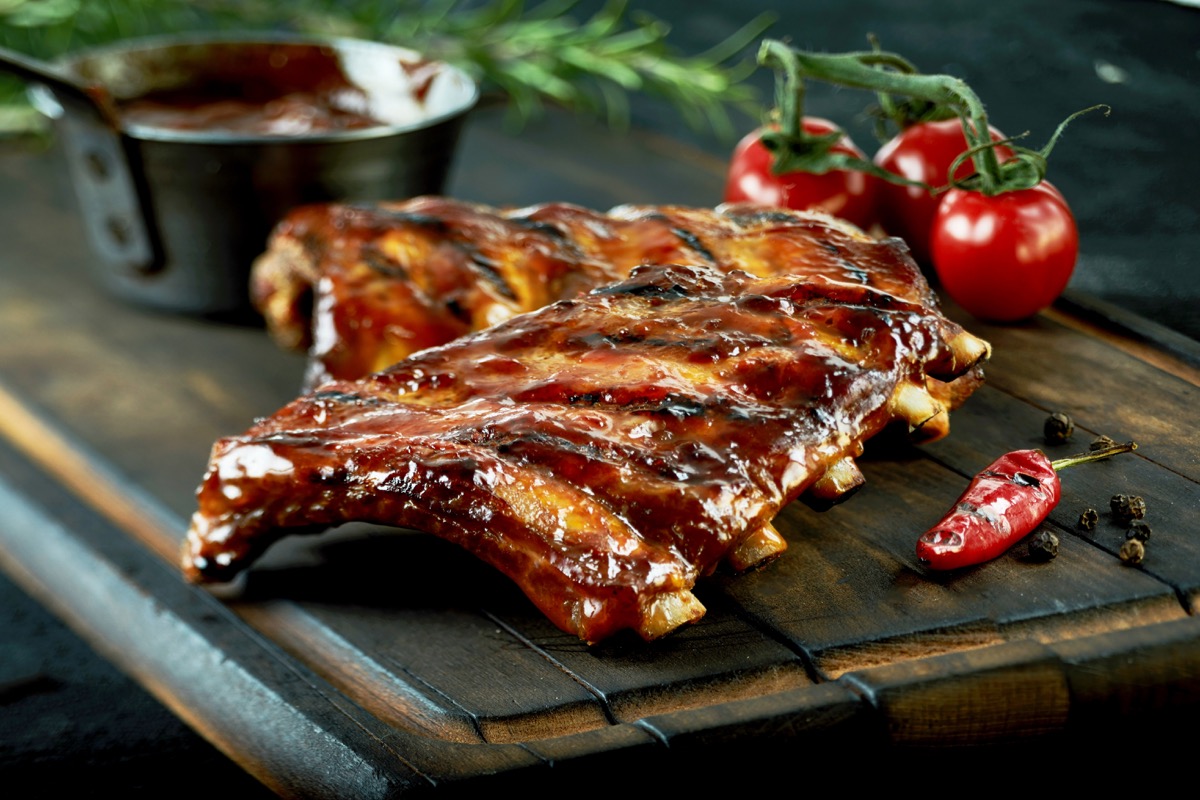If You Don’t Have This in Common, Your Relationship Might Not Last

They say “opposites attract,” and that may be true of extroverts and introverts, reserved people and more adventurous ones, or someone who’s anxiety-prone versus someone a bit more laid-back. But it turns out, opposites don’t necessarily attract in the case of food preferences. You may think that not having the same taste in what you eat couldn’t possibly be enough to cause a real rift in a relationship, but recent research found that for many people, it is. In fact, rather than pass judgment on your car, your salary, or your shoes, an Oct. 2020 U.K. survey found that people are more likely to judge the contents of your plate. For more on how food preferences can affect your relationship, read on. And to see what else can cause a couple to end things, check out Half of Men Say They Would Break Up With a Woman Who Does This.
Whether you realize it or not, much of your life, dating included, revolves around eating. From choosing a restaurant to eat at to stocking the fridge with food to agreeing on takeout, what you eat can be a polarizing or uniting aspect of your relationship. According to the new survey of 2,000 Brits, 22 percent of women said they would only consider a future with someone who had a similar taste in food. A shocking 30 percent of respondents even said that food was more important to them than sex.
The survey, which was commissioned by Peperami Chicken Bites, also found that more than half of the respondents thought that their date liking the same dishes and flavors makes them more attractive. In fact, the results showed that 17 percent of people said they would refuse to continue dating someone if they had differing tastes—even if they were a millionaire. And 12 percent of respondents said they would even consider walking out on a date because of what their prospective partner ordered.
“When you are in a new relationship, finding commonality makes the budding romance stronger,” says Amber Artis, certified matchmaker and CEO of Select Date Society. “Similar preferences make us feel connected. It’s much easier to bond over a plate of sushi than it is if you are eating two very different meals.”
Marriage and family therapist and author Sharon Gilchrest O’Neill says that food preferences have come up in her practice, as well—especially if one partner eats healthy while the other loves fast food.
And timing when it comes to food matters too, according to Artis. “When you eat can matter just as much as what you eat,” she says. “Having similar eating schedules allows you to sit down over meals together. Having dinner at the same time allows you to connect and reflect on your day together. When this shared time doesn’t exist, couples often find themselves trying to find time to connect.”
Since food compatibility is so essential to the success of a relationship, you’ll want to choose your next date meal wisely. Instead of putting a ton of thought what you’re wearing, you may want to focus on what you’re going to order. Here are the foods the survey respondents said you should avoid on a date, from worse to worst. And to know what factor you shouldn’t pay attention to when dating, check out Women Focused on This One Thing Are 60 Percent More Likely to Get Divorced.
6
Sushi

10 percent
5
Fish

10 percent
To see what men think is a non-negotiable, check out This Is the No. 1 First Date Dealbreaker, Research Shows.
4
Corn on the cob

12 percent
To see which color you should avoid altogether, check out Wearing This Color Instantly Makes You Less Attractive, Research Shows.
3
Ribs

14 percent
2
Onion

23 percent
For more interesting information delivered straight to your inbox, sign up for our daily newsletter.
1
Garlic

36 percent
To see what tends to push men away, check out This Is the No. 1 Turn-Off for Men, According to a Therapist.